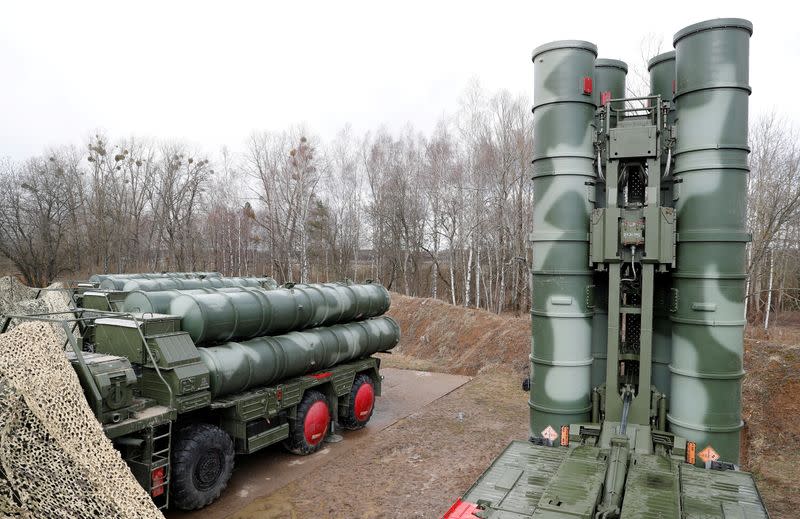ANKARA (Reuters) – Turkey will not give up on its acquisition of Russian S-400 defense systems, despite U.S. sanctions, it said on Thursday, but added that it will seek to resolve problems with its NATO ally through dialogue .
In December, Washington imposed sanctions on Ankara for acquiring the S-400s, alleging that they threaten its F-35 fighters and are incompatible with NATO’s shared defenses. Turkey rejects this and says the systems will be independent of NATO’s defenses.
Since Joe Biden was elected president of the United States, Ankara has said he wants better ties and has again proposed a joint working group S-400. But Washington has repeatedly rejected this and says sanctions will remain until Turkey no longer has the missiles.
Turkey’s defense minister said on Tuesday that Ankara would propose partial activation of the S-400s in negotiations with the United States, according to local media.
In an interview with state broadcaster TRT Haber, presidential spokesman Ibrahim Kalin said the minister’s comments were misinterpreted, but gave no further details, adding that conversations are being held with Washington about disagreements, but that quick solutions to the problems are not. are to be expected.
“The United States has said so far that it will not engage in negotiations on this issue (S-400). Turkey will not give up on the issue of the Russian S-400,” said Kalin.
“When we read the strategic framework in the right way, we think we can make progress,” he said. “When proposing solutions, we will be in negotiations,” he added, without giving further details.
The United States also pulled Turkey out of its F-35 jet program, of which Ankara was a manufacturer and buyer, compared to the S-400s in mid-2019.
Turkey said its purchase of the S-400s was a necessity, as it did not have adequate alternatives from NATO allies.
In a phone call last week that marked the first official contact between the allies since Biden took office, Kalin told U.S. national security adviser Jake Sullivan that the S-400 dispute needed to be resolved.
On Thursday, Kalin said he and Sullivan had agreed to hold another conference call in the next few days to specifically discuss their differences, adding that the foreign ministers of the two countries would also speak in the coming days.
The allies are at odds with a number of issues, from the S-400s to Turkey’s request for extradition from a cleric who blames an unsuccessful coup attempt in 2016, Syrian politics and a case of breaking sanctions against Iran against Turkish state creditor Halkbank.
(Reporting by Tuvan Gumrukcu; Editing by Jonathan Oatis and Toby Chopra)
